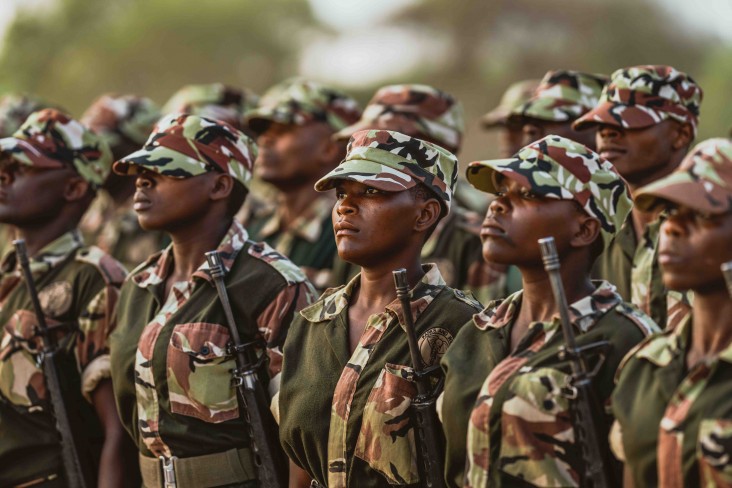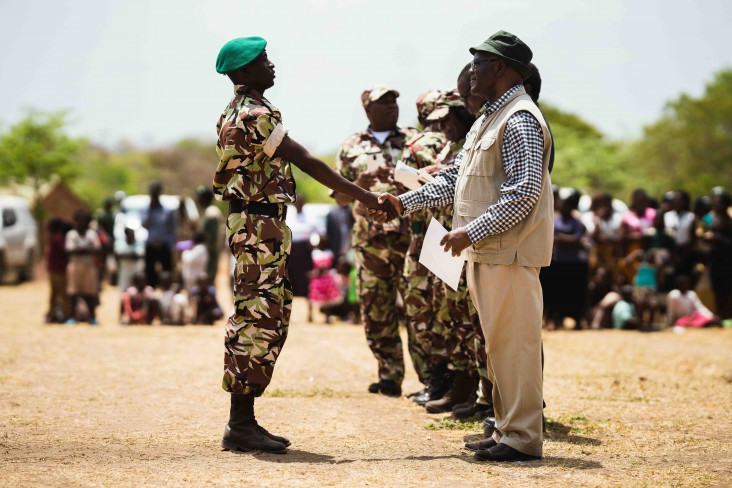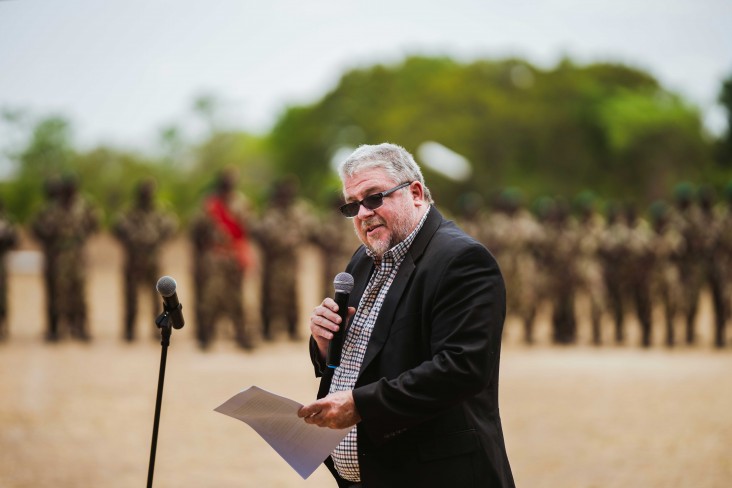Speeches Shim

With a plan, public-private coordination, 112 newly graduated park rangers, and grit.
Until the late 1980s, Kasungu was Malawi’s flagship national park with sizeable populations of elephants, buffalo, roan antelope, zebra, and hartebeest. It also had regular sightings of lion, cheetah, wild dog and black rhino. Since then, however, poaching has decimated the wildlife populations in all parks from Kasungu in Malawi through to the Luangwa Valley in Zambia.
Current estimates put monthly elephant loss at 300 per month in the Luangwa system. Black Rhino were poached to extinction by the early 1990’s in all but North Luangwa National Park and a recent census confirms that most other large animal populations have suffered severely from uncontrolled poaching.
In light of these challenges, the Malawian and Zambian governments signed the treaty that formally established the Malawi-Zambia transfrontier conservation area (TFCA ) in July of 2015. To turn the tide against uncontrolled poaching and improve the management of the parks and surrounding communities, they then teamed up with USAID to launch the Combating Wildlife Crime in the Malawi-Zambia Landscape Project under the management of the International Fund for Animal Welfare (IFAW).

The overall goal of the project is to reduce illegal wildlife trade and poaching, and improve transboundary wildlife management in the Malawi-Zambia Landscape over the next five years. Through a transboundary approach, the project counters wildlife crime and trafficking, improves awareness of wildlife crime and its impacts, and shares data and information among law enforcement agencies and civil society in the Malawi-Zambia landscape. The main implementing partner, IFAW, works in partnership with Lilongwe Wildlife Trust (LWT, Malawi), Wildlife Crime Prevention (WCP, Zambia) and IMANI Development.
Key activities of the CWC program include:
Crime prevention: develop and test improved crime prevention approaches Law enforcement: improve effectiveness in law enforcement and strengthen disincentives to engage in wildlife crime Capacity strengthening: increase investigation and prosecution capacity Transboundary cooperation: promote information and data sharing and collaboration among Malawi and Zambia agencies and civil society Community engagement: effectively engage communities in countering wildlife crime.
To celebrate an important milestone in this effort, Deputy Mission Director Peter Trenchard traveled to Kasungu National Park to help celebrate the graduation of 112 new rangers. In his remarks, he lauded the new recruits for successfully completing their training and for making the deep commitment necessary to help their countries preserve and expand their awe-inspiring wildlife legacy. He told the new graduates: “Ultimately, our common goal is to bring an end to the truly upsetting disaster of wildlife crime. The negative impacts on these magnificent species and on the lives of Malawians and Zambians must be stopped. I know we can do it.” Everyone present understood that this ceremony signaled a big moment in a larger and more comprehensive effort to end decades of wildlife destruction across large swaths of Malawi and Zambia.

IMPACTS TO DATE:
Since 2017 the Malawi Wildlife Crime Investigation Unit and Kasungu NP Rapid Response Unit, in coordination with Zambian law enforcement, have seized a combined 3.65 tons of ivory, 58 firearms, and 3 live pangolins in 18 operations. 148 people were arrested. Trained 67 Zambian wildlife law enforcement officers and 112 Malawian rangers and wildlife assistants on improved CWT practices. Seven of nine women graduated in the first cohort of Malawian rangers, a female pass rate of 77.8%. This was higher than their male counterparts.

Comment
Make a general inquiry or suggest an improvement.